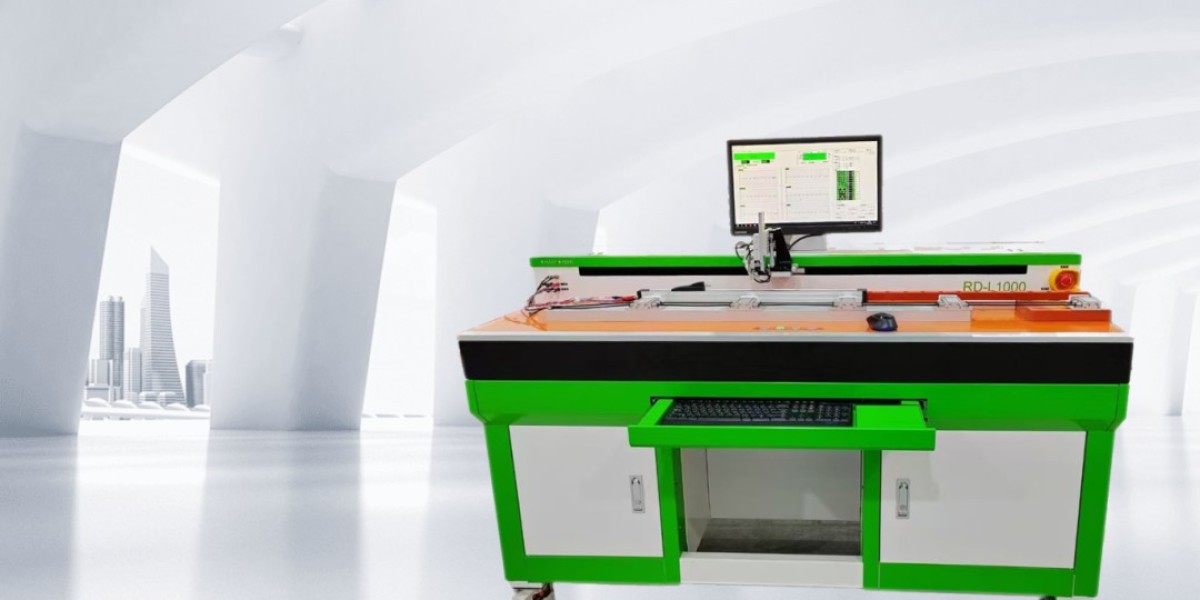Introduction
In modern electronics manufacturing, achieving precision in resistor values is crucial for the performance of circuits. A laser trimming machine is a vital tool that enhances the accuracy of resistors, particularly in SMD resistor packages. Additionally, ensuring resistors function correctly requires testing, often done using a multimeter. This article explores the role of laser trimming machines, SMD resistor packaging, and how to test resistors with a multimeter.
What is a Laser Trimming Machine?
A laser trimming machine is a high-precision device used to fine-tune the resistance values of resistors and other electronic components. It achieves this by removing minute amounts of material from a resistor to achieve the desired electrical characteristics.
Key Features of a Laser Trimming Machine
High Precision – Achieves accurate resistance values with minimal tolerances
Non-Contact Process – Uses a laser, preventing mechanical stress on components
Fast and Efficient – Ideal for mass production of electronic components
Automated Control – Ensures consistent quality and repeatability
Applications of Laser Trimming Machines
Fine-tuning precision resistors in medical and aerospace electronics
Adjusting hybrid circuits in automotive and industrial applications
Optimizing sensor performance for enhanced sensitivity
Calibrating thin-film and thick-film resistors for accuracy
Understanding SMD Resistor Package
An SMD resistor package refers to a type of resistor designed for surface mount technology (SMT), eliminating the need for through-hole leads. These resistors are compact, highly reliable, and widely used in consumer electronics, automotive circuits, and industrial devices.
Common SMD Resistor Packages
0201 (0.6mm × 0.3mm) – Ultra-small, used in mobile devices
0402 (1.0mm × 0.5mm) – Found in high-density PCB designs
0603 (1.6mm × 0.8mm) – Balances size and power handling
0805 (2.0mm × 1.25mm) – Common in general electronic circuits
1206 (3.2mm × 1.6mm) – Higher power handling applications
Advantages of SMD Resistors
Compact Design – Saves PCB space for miniaturized electronics
Low Inductance – Suitable for high-frequency applications
Reliable Performance – Stronger against vibrations and shocks
Automated Assembly – Efficient for mass production
How to Test a Resistor with a Multimeter
Testing a resistor with a multimeter is an essential step in troubleshooting electronic circuits. Whether checking an SMD resistor package or a traditional through-hole resistor, the process ensures that components are functioning correctly.
Steps to Test a Resistor with a Multimeter
Power Off the Circuit – Always disconnect power before testing
Set the Multimeter to Ohms Mode – Choose an appropriate resistance range
Connect the Probes – Place one probe on each end of the resistor
Read the Display – Compare the measured value with the resistor’s rated value
Check for Variations – If the reading is significantly off, the resistor may be faulty
Common Issues Identified During Testing
Open Circuit – Infinite resistance indicates a broken resistor
Drifted Resistance – A significantly different value suggests aging or damage
Short Circuit – Near-zero resistance may indicate an internal failure
Why Combine Laser Trimming with Resistor Testing?
Using a laser trimming machine ensures high-precision resistors, while multimeter testing confirms accuracy before deployment. This combination is essential in industries where reliability and precision are paramount.
Industries That Benefit from Laser Trimming and Resistor Testing
Medical Electronics – Ensures precise sensor performance
Automotive Electronics – Maintains stability in critical systems
Aerospace Applications – Guarantees reliability in extreme conditions
Consumer Electronics – Enhances circuit performance and longevity
Conclusion
A laser trimming machine plays a crucial role in fine-tuning resistor values, especially in SMD resistor packages. Meanwhile, testing resistors with a multimeter ensures quality and functionality in electronic circuits. Together, these processes contribute to the high reliability of electronic components across various industries.









